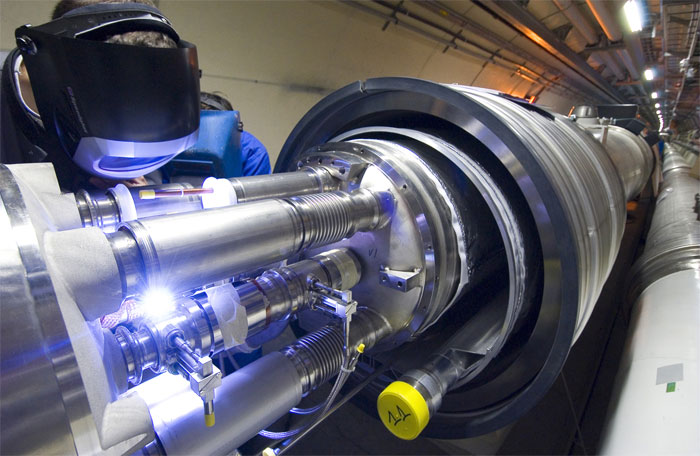Question: Will the Large Hadron Collider Destroy the Earth?
Answer: No.
As you might have heard in the news recently, several people are suing to try and get the Large Hadron Collider project canceled. When it finally comes online, the LHC will be the largest, most powerful particle accelerator ever constructed.
If there’s something wrong with it, the LHC might have the power to damage itself, but it can’t do anything to the Earth, or the Universe in general.
There are two worries that people have: black holes and strange matter.
One of the goals of the Large Hadron Collider is to simulate microscopic black holes that might have been generated in the first few moments of the Big Bang. Some people are worried that these artificial black holes might get loose, and then consume the Earth from within, eventually moving on to destroy the Solar System.
The physicists are confident that any black holes they create will evaporate almost instantaneously into a shower of particles. In fact, the theories that predict that black holes can be created also predicts that black holes will evaporate. The two concepts go hand in hand.
The other worry is that the Large Hadron Collider will create a theorized material called strangelets. This “strange matter” would then be able to infect other matter, turning the entire planet into a blog of strange matter.
This strange matter is completely theoretical, and once again, the same theories that say it might be produced in the Large Hadron Collider also rule out any risks from it.
One of the most important considerations is the fact that the Moon is struck by high energy cosmic rays that dwarf the power of the Large Hadron Collider. They were likely blasted out of the environment around a supermassive black hole.
These have been raining down on the Moon for billions of years, and so far, it hasn’t turned into a black hole or strange matter.
You can read more about the Large Hadron Collider lawsuit here. Or how it might create wormholes, a view into other dimensions, or unparticles.

